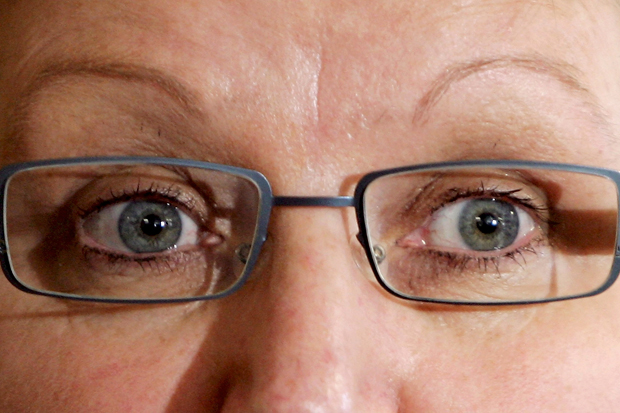It is good to see that proposals for electoral reform keep coming in. Some of them are designed to prevent any unfortunate lapses in the future which might result in the public actually expressing their own opinion. One example is the plebiscite on same sex marriage, where it is said we do not need a vote on that issue because we already know what the people think and that arguing about it will just upset people before they enter into marital bliss. Then there are the European Community polls on treaties and suchlike where you let the people vote, but if they don’t vote the right way, they have to keep on voting until they get it right. Other reforms explain how the result of an election, which looks like a loss, was really a win. A great reformer along those lines who has now emerged is former senator Amanda Vanstone, a Fairfax apologist for Mr Turnbull, who has concluded after painstaking analysis that her hero produced an ‘incredible achievement’ at the recent election, as the mere numbers of seats won and lost by the Liberal party is an imperfect way of assessing an election result and the true intention of the voters. Writing in the Age, Ms Vanstone has shown that the Labor party did not really win 13 seats, but a mere nine, if you put the result into ‘some perspective’. The new perspective required is that the ALP really won only nine seats, because three of its wins were Labor seats and one was ‘line ball’, due to some unfortunate boundary changes. It seems that if some voters had not voted the way they did, the result would have been different. So the government really has a majority of five, not one. Anyone who thinks differently is ‘punch drunk’. Follow?
But it could be that the government has already taken up Ms Vanstone’s approach. It seems that every day produces a new outburst of chutzpah from ministers and their leader who keep claiming that the near loss in the House and the complete debacle in the Senate was actually a victory, and a victory, moreover, that gives a mandate for some remarkable positions. One, I notice, is a mandate for stealing peoples’ superannuation when, if there were a single subject that alienated a million traditional Liberal voters, that must be it, not because everyone is affected, but because people think they might be the next victim of the next bout of retrospective legislation. If that particular mandate is implemented, the only result I can see is the loss of another million votes at the next election.
Then there is the government’s performance on the Census: a push for big government, compulsory, poorly explained and the ludicrous attempt by the minister, Michael McCormack, to justify an appalling intrusion into our privacy. He clearly does not understand his job, his assurances about the security of the Census are clearly worthless and he should resign. The government does not even seem to understand the privacy concern. It is not the danger of our answers being leaked or hacked and ending up in the wrong hands; the privacy concern is if the records are not leaked or hacked, but stay exactly where they are meant to be, in the hands of government to be poured over, analysed, kept and swapped around between agencies, another step towards the expansion of the all-dominant state.
For a short time after the election there was a fond hope that things might get better, but they seem to get worse at every turn. It beggars belief that the absurd proposal for Kevin Rudd to run the United Nations was allowed to drag on when it should have been killed the instant he stopped doing the dance of the seven veils and announced his candidature. The result: an unseemly public division between the Prime Minister and his foreign minister and more ammunition for those who want to argue that the PM is a weak vacillator and the captive of dark, right wing forces.
Politics aside, Wednesday July 17 was a black day in the administration of justice in Australia. Until then, if someone was alleged to have committed a crime, the police would investigate, lay a charge if appropriate, and then leave it to the courts to assess the evidence and the guilt or innocence of the accused. Our American cousins have a different system, under which the District Attorney lines up at a press conference with a phalanx of offsiders nodding like a Q&A audience, announces that the defendant has been charged and then unleashes a torrent of untested accusations which are said to make out an unanswerable case of guilt. That dividing line was crossed on July 17 by the public denunciation by the ABC of Cardinal George Pell, who has had allegations made against him that amount to serious crimes and who should be judged by a jury not infected by the ABC’s obvious bias. If charged, I do not see how he can ever receive a fair trial after the ABC’s disgraceful performance.
Strange that the media has not publicised that nominations are open for directors of the ABC and the SBS; indeed, the position of the Chair of the SBS is up for appointment. If you would like to take part in running one of our two public broadcasters, now is your chance to see what they are like from the inside and how you can contribute. I am on the independent panel that makes recommendations to the government on the appointments which are made solely on merit; applications close on 19 August.
The post Brown study appeared first on The Spectator.
Got something to add? Join the discussion and comment below.
Get 10 issues for just $10
Subscribe to The Spectator Australia today for the next 10 magazine issues, plus full online access, for just $10.
You might disagree with half of it, but you’ll enjoy reading all of it. Try your first month for free, then just $2 a week for the remainder of your first year.















Comments
Don't miss out
Join the conversation with other Spectator Australia readers. Subscribe to leave a comment.
SUBSCRIBEAlready a subscriber? Log in